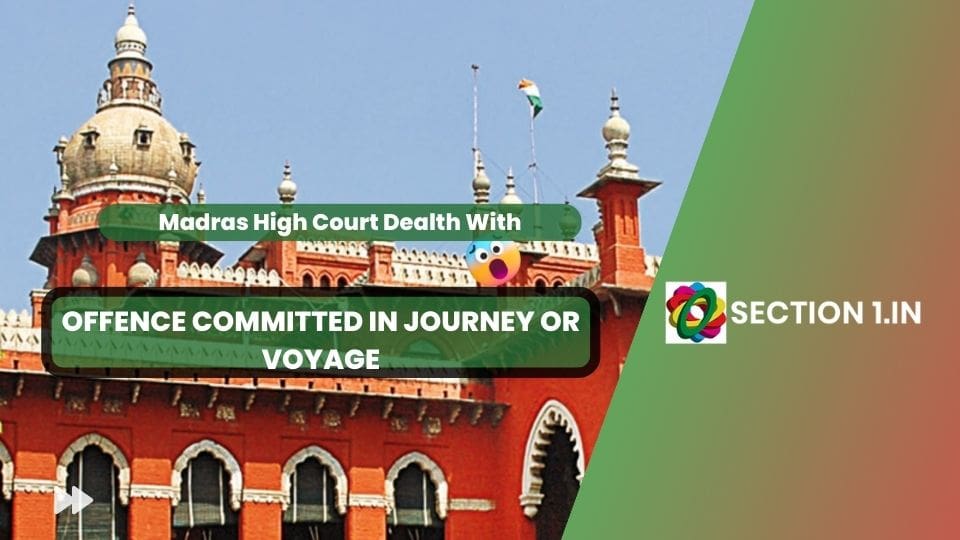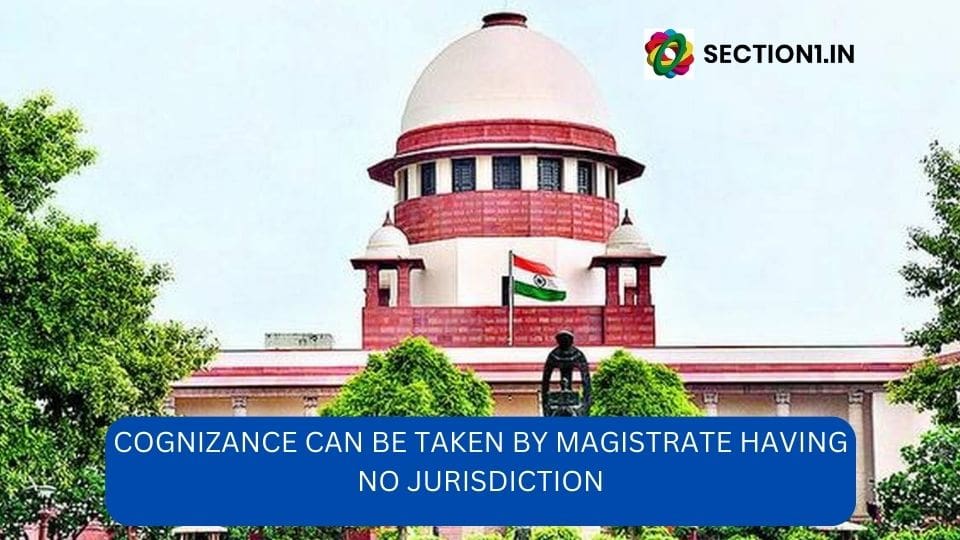(h) One of the accused by name Tintu Abraham filed Crl.M.C.No.637 of 2012 before the Kerala High Court to quash the FIR in Mulanthuruthy Police Station Crime No.26 of 2012 and to transmit the records to the file of the Erode Railway Police Station for the Tamil Nadu Police to conduct an investigation in Cr.No.86 of 2012. A learned single Judge of the Kerala High Court, by a well considered order held that the offence had taken place while the victims were on a train journey and referring to section 183 of the Code of Criminal Procedure, rejected the plea of the accused, holding that the FIR in Mulanthuruthy Police Station Cr.No.26 of 2012 cannot be quashed. The learned single Judge relied on the judgment of the Supreme Court in Naresh Kavarchand Khatri v. State of Gujarat ((2008) 8 SCC 300) wherein the Supreme Court has held that in a case where a trial can be held in any of the places falling within the provisions of Sections 177, 178 and 181 Cr.P.C., investigation can be conducted by the Officer of the Police Station concerned within the jurisdiction thereto.
xxx
6. This Court is in total agreement with the order passed by the learned single Judge of the Kerala High Court in Cr.M.C.No.637 of 2012 on 11.6.2012. The learned single Judge has relied upon the judgment of the Supreme Court in Naresh Kavarchand Khatri v. State of Gujarat ((2008) 8 SCC 300) and has held that the Kerala Police have the jurisdiction to investigate the case.
7. Coming to the question of trial, Section 183 of the Code reads as under:
“183. Offence committed on journey or voyage.— When an offence is committed whilst the person by or against whom, or the thing in respect of which, the offence is committed is in the course of performing a journey or voyage, the offence may be inquired into or tried by a Court through or into whose local jurisdiction that person or thing passed in the course of that journey or voyage.”
From the above provision it is crystal clear that the offence, which had taken place while the victims were on train journey, can be enquired into and tried, either by the Judicial Magistrate No.II, Erode, or by the Additional Sessions Judge, Muvattupuzha.
xxx
TWO PROCEEDINGS ON THE SAME OCCURRENCE
11. Going by the expression deployed in Section 186(b) in this case, though the final report was presented by the Erode Railway Police before the Judicial Magistrate No.II, Erode, Tamil Nadu, on 14.6.2013, yet cognizance was taken only on 27.9.2013 and, thereafter, process was issued to the accused. Whereas, the final report in Mulanthuruthi Police Station Crime No.26 of 2012 was filed before the Judicial First Class Magistrate, Kolenchery, Kerala, on 12.7.2013 and the case was numbered as C.P.No.24 of 2013. Cognizance was taken on 17.7.2013 and process was issued to all the accused on the same date. Therefore, proceedings first commenced with the issuance of process by the Judicial First Class Magistrate, Kolenchery, Kerala, and not before the Judicial Magistrate No.II, Erode, Tamil Nadu. Ergo, for invoking Section 186(b) Cr.P.C., the petitioner should have approached the High Court of Kerala.
SECTION 186 CR.P.C DOES NOT APPLY
12. However, this Court finds that Section 186 may not even apply because, the Judicial Magistrate No.II, Erode, Tamil Nadu, has taken cognizance of the offences under Sections 147, 148, 341, 323 and 324 IPC, whereas, the Judicial First Class Magistrate, Kolenchery, Kerala, has taken cognizance of the offences under Sections 143, 147, 148, 324, 323, 34, 393, 307 and 149 IPC. Though both the Final Reports are for the same incident, yet the Police investigation by the Mulanthuruthi Police shows that grave offences have been committed and materials have been gathered, based on which the learned Judicial First Class Magistrate, Kolenchery has taken cognizance of those offences. For invoking the provisions of Section 186 of Cr.P.C., both the Courts should have taken cognizance of the same offence, but whereas, the test of sameness is not satisfied in this case as stated above. Therefore, I am afraid the provisions of Section 186 will not apply to the facts of this case.
ACCUSED CANNOT FACT TWO TRIALS
14. In this case all the accused and most of the witnesses are from Kerala. It will be very inconvenient for the accused and the witnesses to come all the way to Erode in Tamil Nadu and take part in the trial, which will perforce be held in Tamil, a language that is not fluently known to them. As held by the Calcutta High Court, supra, for the same facts, the accused should not be subjected to two prosecutions. Under such circumstances, this Court is of the view that, it will serve the interest of justice if the proceedings in C.C.No.138 of 2013 on the file of Judicial Magistrate No.II, Erode, Tamil Nadu is quashed on the ground that it will be inconvenient to all the parties as stated above, and also on the score that the accused should not be subjected to two prosecutions at two different Courts, for the same bundle of facts.
Case quashed.
PARTY: Arun Raj. A. vs. State rep. by Inspector of Police, Erode Railway Police Station, Erode.Crl.O.P. No. 21451 of 2015 – 30-10-2015
https://www.mhc.tn.gov.in/judis/index.php/casestatus/viewpdf/248478




